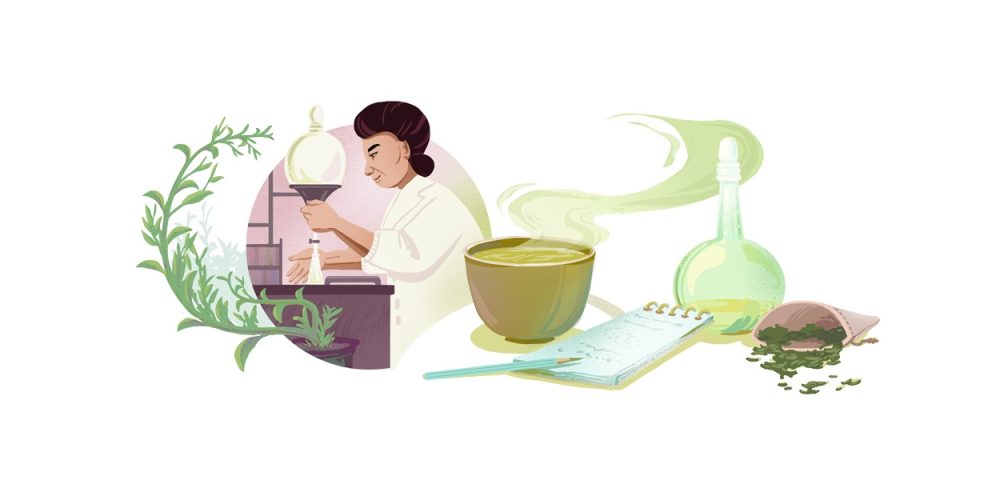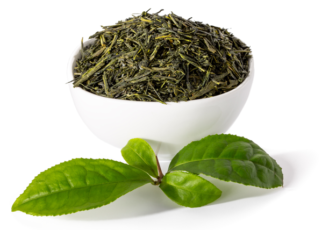Green tea has taken a major part in our healthy life. The green beverage carries various antioxidants that help lose weight, prevention of cardiovascular disease, brain function, and much more.
For those who are healthy as well as obese, it can be a great way to lose weight. Well, we all know about this greatness but a handful of us only know about the person who put so much effort into researching green tea.
Michiyo Tsujimura is a Japanese agricultural scientist who took tremendous efforts in researching the components of green tea. She was the first woman in Japan to receive a doctoral degree in agriculture in Japan.
Michio received special recognition for her research. Today marks her 133rd birthday. And Google has released a doodle in honor of her work.

If today green tea has been identified for its nutritional value. It is because of Tsujimura who told the world of it.
Michiyo Tsujimura was born in Okeagawa region Saitama on September 17, 1888 in Japan.
While still in school, Tsujimura was inspired to go into scientific study.
Tsujimura taught for a short time after graduation at two different women’s schools before enrolling in the Hokkaido Imperial University in 1920. As an unpaid laboratory assistant at Hokkaido Imperial University, she conducted research on the nutritional value of silkworms.
In 1922, Tsujimura moved to the Tokyo Imperial University, but the lab she worked in was destroyed in the devastating earthquake of 1923.
Dr. Umetaro Suzuki, an agricultural doctor who discovered vitamin B1, hired Tsujimura after she recovered from the disaster.
Michiyo Tsujimura and Seitaro Miura discovered green tea to be a natural source of vitamin C while working at this laboratory. The volume of green tea exported to North America rose as a result of their research.

Tsujimura was able to extract more of green tea’s chemical composition as she studied it further, including catechin (a bitter component of tea) and tannin. Her doctoral thesis “On the Chemical Components of Green Tea” published in 1932 comprised these and other results, making her the first Japanese woman to be awarded a doctorate in agriculture.
In 1935, she received a patent for a process of obtaining plant-based crystalline Vitamin C.
Tsujimura’s research career culminated with her appointment as an assistant professor at Ochanomizu University, followed by her appointment as the school’s first dean of the Faculty of Home Economics.
In 1956, for her work on green tea, Tsujimura won the Japan Prize for Agricultural Science. She received the Order of the Precious Crown of the Fourth Class in 1968.
On June 1, 1969, Michiyo Tsujimura, passed away at the age of 80.
Today, in Okegawa, a stone memorial is in place honoring her many accomplishments.
Also Read: Different Types of Tea and The Health Benefits of Tea
Right Way To Consume
- Before going to bed at night.
- Do not take medicines with green tea.
- Experts suggest that consuming green tea after lunch may reduce the nutritional value of the meal and lead to malnutrition. (Consume it before or after two hours of the meal)
- As mentioned earlier, green tea is very helpful in dissolving cholesterol and reducing weight.
- Drinking too much green tea on an empty stomach can cause gastric and liver problems.
- Drinking green tea three times a week can increase a person’s life expectancy and reduce the risk of a heart attack.
- The nutrient EGCG in green tea also promotes the growth of bacteria in the area that contributes to the growth of acne.
- In addition, it has anti-inflammatory properties that help prevent acne.
- If pregnant women drink more than two cups of green tea, there is a risk of miscarriage, say, according to Japanese researchers.
- The antioxidants in green tea keep the heart strong and help you live a longer and healthier life.
- Maximum of Two cups per day is adviced by researchers and doctors not beyond.






One thought on “Google Celebrates Tsujimura’s Birth Anniversary: Are You Drinking The Green Tea Right Way”